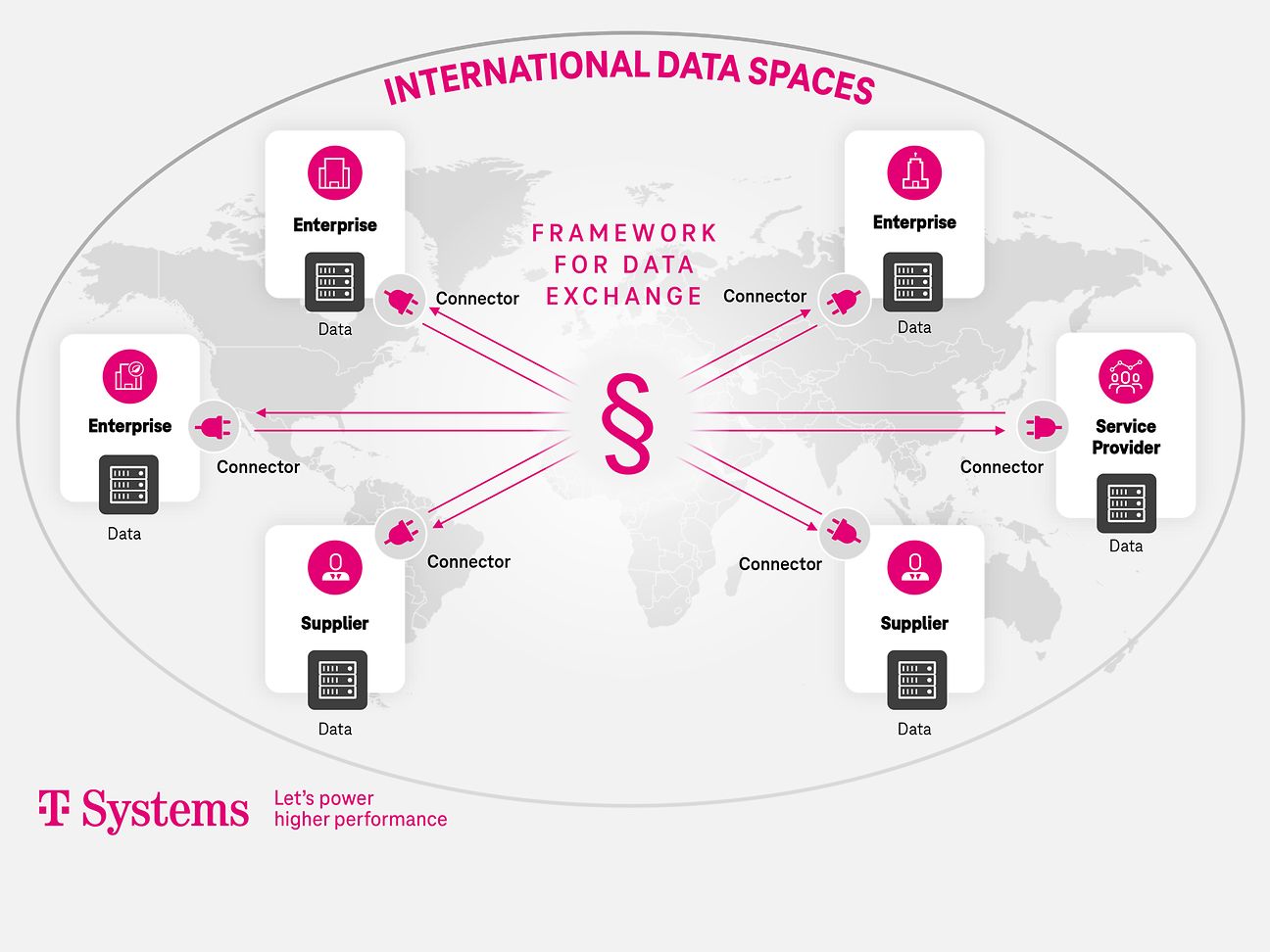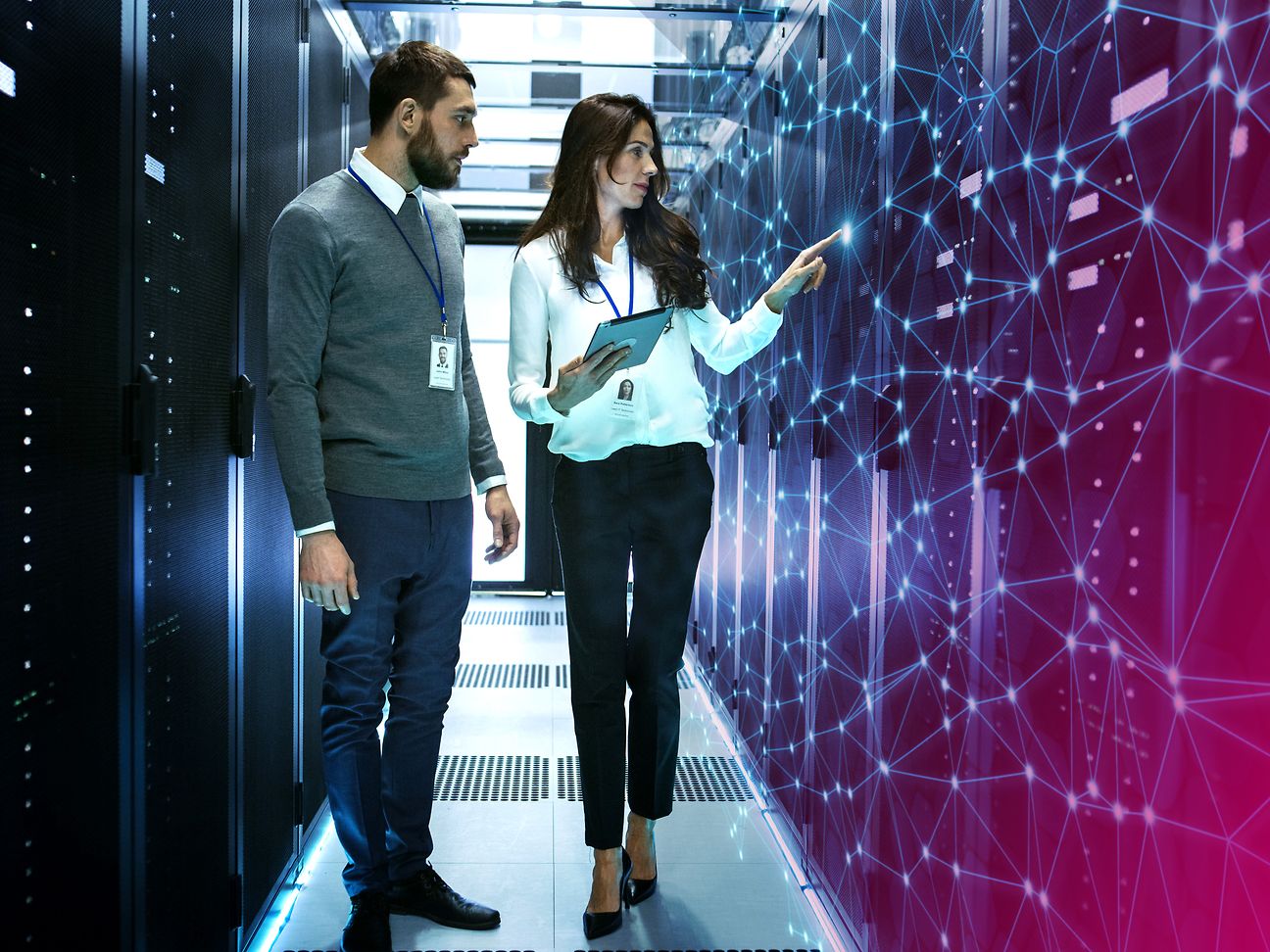What are international data spaces?
"Data is the new oil" is a quote from an article that appeared in the Economist in 2017. It seems hackneyed, but it is more topical than ever before: companies have discovered the new oil of the 21st century. They have noticed that it is a special material. They extract the new oil using a wide variety of methods. Companies collect it in so-called data lakes. But what they can't do yet is refine the new oil, distribute it in a value chain and process it. And use them to produce plastics, paints and pharmaceuticals. What is missing is a price tag. And sovereignty over one's own data.
The great advantage of digital data lies in the flawless 1:1 copy, which is also free of charge as soon as it is shared on the Internet. Publishers are trying to make money on the Internet with great difficulty. No company has an interest in sharing data if it doesn't make money from it. Or worse: if others earn money with it. International data spaces give data owners back sovereignty over their data.
International Data Spaces – A Definition
It's about a new way of sharing data. An attempt at definition: Participants in International Data Spaces store their data as usual. Where they do this – whether centrally or decentrally – plays a subordinate role. Sharing the data is crucial. This is done in data spaces directly between supplier and customer, peer-to-peer. Data sovereignty remains with the owner of the data. This means that the owner grants access rights such as "read", "edit" and "copy". And for certain users and certain types of use. The applications for managing the requests, offering the data and monetizing the data are centrally located in the cloud – the data itself is distributed decentrally. And: You can get a price tag. International data spaces are the stepping stone for the industrialization of data.
Gaia-X – a blueprint for European data refineries
"If data is the new oil, then we have to slowly start getting our fingers dirty," said Bundestag member Thomas Jarzombek at the 2019 Digital Summit in Dortmund, when he presented the Gaia-X project: France and Germany are planning to build a data infrastructure for Europe. A data infrastructure that is competitive, secure and trustworthy. On the German side, the founding members include BMW, Robert Bosch, Deutsche Telekom, SAP and Siemens. On the French side, for example, Amadeus, Atos, EDF and Orange are represented. In 2021, 212 new members joined, including Microsoft, Alibaba, Amazon and Google.
Catena-X – the automotive industry is leading the way
One of Gaia-X's flagship projects is Catena-X. The data ecosystem for the automotive industry aims to simplify the exchange of data between car manufacturers and suppliers according to the principles of international data spaces. The offer started at the Hannover Messe 2023. Catena-X is based on the standards of Gaia-X and the International Data Space Association (IDSA). In 2022, Gaia-X certified Deutsche Telekom's subsidiary T-System as a "Gaia-X Digital Clearing House". It confirms the identity of new participants. Cofinity-X offers the data space. The first two applications were launched at the Hannover Messe: One is about ensuring quality in supply chains. The other application provides data on the circular economy. Both aim to create transparency so that existing resources can be used to the maximum.
It goes on – with Manufacturing-X and more
The Plattform Industrie 4.0 initiative has set itself the goal of connecting international data spaces of the various industrial sectors. Manufacturing-X focuses on mechanical and plant engineering, in the broadest sense the manufacturing industry. Catena-X is not only a lighthouse initiative, but a concrete example of an international data space for the automotive industry. Other industries will follow. However, completely different scenarios are being prepared for international data spaces: By 2025, the European Union wants to lay the foundations for a European health data space. The background to this is, for example, research into very rare diseases. In one country, there may be too little data available for this. If research could use the data from all EU countries, the results would be more reliable and faster. However, it is precisely with this data that sovereignty has the highest priority. And international data spaces can do all of this.

